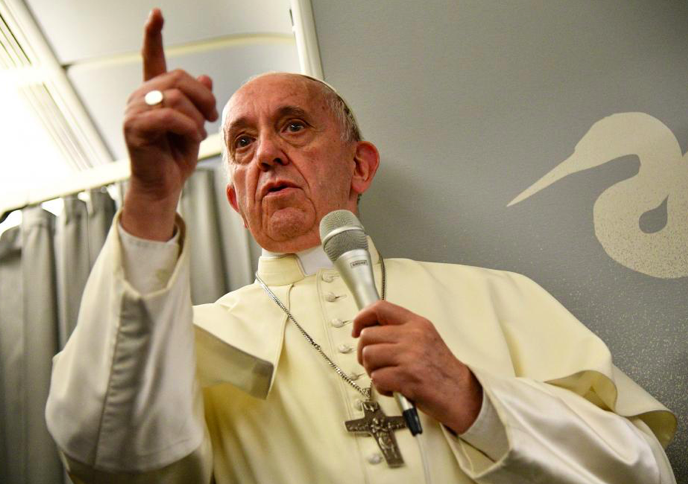Bomb threats, sex scandals and protests: Pope Francis faces trouble in South America
Pope Francis heads to South America today for a visit that is supposed to be about peace, supporting indigenous people and protecting the environment. But instead he is facing bomb threats, protests and anger about clerical sex abuse.
The 81-year-old pontiff's last foreign trip, to Myanmar, was billed as his most controversial and diplomatically difficult. But from a Catholic Church perspective this week-long South America tour, involving two countries and six cities with 22 speaking engagements, contains just as many potential pitfalls.

Francis heads to Chile today where already five churches in Santiago have been attacked ahead of the visit with one attacker leaving the message: 'Pope Francis, the next bombs will be on your cassock.'
No one was hurt in the attacks but no one has been arrested and the bombings have forced the security plan for Pope Francis' trip to be re-evaluated and reinforced, the country's interior sub secretary, Mahmud Aleuy,has said.
Behind much of the anger is a scandal over clerical sex abuse.
The residents of the southern city of Osorno strongly oppose Francis' decision to appoint Juan Barros as their bishop in 2015 regardless of him being accused of covering up abuse. Barros has denied any knowledge of the abuse.
Francis can also expect protests when he visit Peru in the second half of the week with the Vatican recently taking over the conservative Catholic society, Sodalitium Christianae Vitae (SCV), after allegations that its members abused youth sexually, physically and psychologically.
Families of the victims have demanded to speak to Pope Francis and the Vatican spokesman Greg Burke said he did not rule out a meeting, although one was not scheduled.
As well as tensions in both countries, Pope Francis also has to tread delicately around why he is not visiting his home country of Argentina, despite never having set foot there since his election as pontiff in 2013.
The contrast with Pope John Paul II, who visited his native Poland in 1979, a year after he came Pope, and with his successor Pope Benedict XVI, who visited his homeland Germany on his first foreign trip in 2005, is stark.
It is not that he is avoiding the continent. He travelled to Brazil in 2013, Bolivia, Paraguay and Ecuador in 2015, Colombia last year and now Chile and Peru. In fact all Argentina's neighbouring countries, with the exception of Uruguay, will have received a papal visit by the end of this week.
So instead tens of thousands of Argentinians will travel by bus across the Andes in the hope of seeing their former archbishop of Buenos Aires. When asked why Francis wouldn't stop off in Argentina, Burke said it was down to 'personal reasons' and analysts suggest it is because of his reluctance to get involved in Argentina's politics.
But even without the complexities of Argentinian politics, Francis is flying into trouble in South America and will need all his diplomatic skills to emerge next Monday unscathed.











